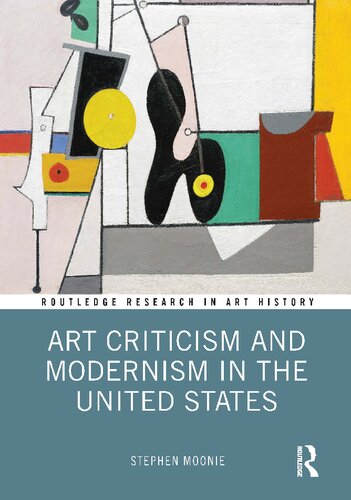

Most ebook files are in PDF format, so you can easily read them using various software such as Foxit Reader or directly on the Google Chrome browser.
Some ebook files are released by publishers in other formats such as .awz, .mobi, .epub, .fb2, etc. You may need to install specific software to read these formats on mobile/PC, such as Calibre.
Please read the tutorial at this link: https://ebookbell.com/faq
We offer FREE conversion to the popular formats you request; however, this may take some time. Therefore, right after payment, please email us, and we will try to provide the service as quickly as possible.
For some exceptional file formats or broken links (if any), please refrain from opening any disputes. Instead, email us first, and we will try to assist within a maximum of 6 hours.
EbookBell Team

4.0
86 reviewsThis study is an analysis of 'high' and 'late' modernist criticism in New York during the 1960s and early 1970s. Through a close reading of a selection of key critics of the period--which will expand the remit beyond the canonical texts--the book examines the ways that modernist criticism's discourse remains of especial disciplinary interest.
Despite its alleged narrowness and exclusion, the debates of the 1960s raised fundamental questions concerning the nature of art writing. Those include arguments around the nature of value and judgement; the relationship between art criticism and art history; and the related problem of what we mean by the 'contemporary.' Stephen Moonie argues that within those often-fractious debates, there exists a shared discourse. And further, contrary to the current consensus that modernists were elitist, dogmatic, and irrelevant to contemporary debates on art, the study shows that there is much that we can learn from reconsidering their writings.
The book will be of interest to scholars working in art history, modern art, art criticism, and literary studies.